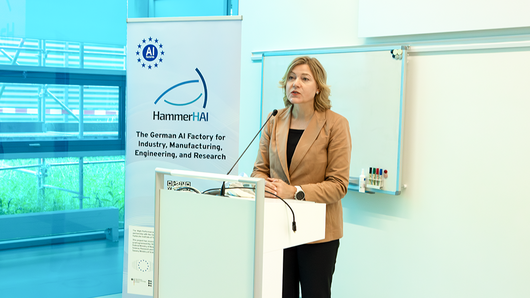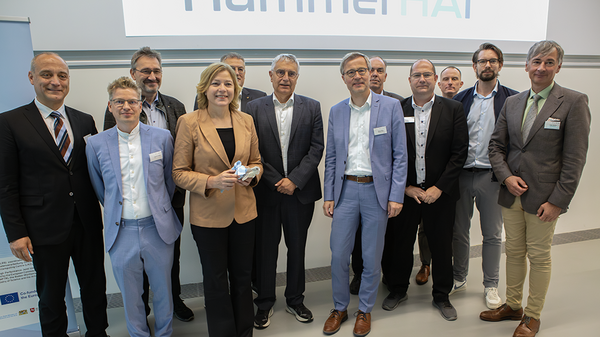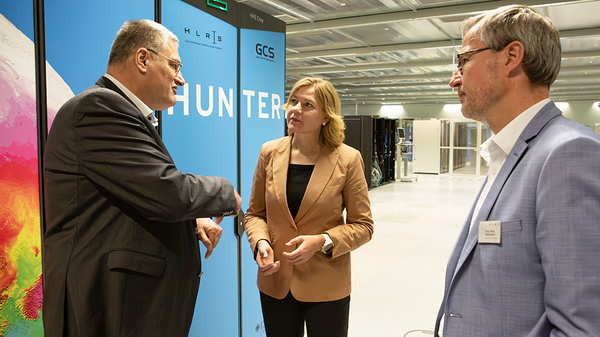High-Performance Computing Center Stuttgart

The focus of the visit was HammerHAI, which was announced in December 2024 as Germany’s first AI factory. Coordinated by HLRS in collaboration with the Leibniz Supercomputing Centre, Karlsruhe Institute of Technology, Gesellschaft für wissenschaftliche Datenverarbeitung Göttingen, und SICOS BW, HammerHAI is working to accelerate the uptake of artificial intelligence in German academic research and industry. HammerHAI is one of 13 AI factories recently established by the EuroHPC JU.
Commenting on this new initiative, Henna Virkkunen said, “AI Factories like HammerHAI will be critical in fostering a German and European ecosystem for generative AI and a key asset for developing European competitiveness in AI and strengthening Europe’s digital sovereignty.”
HammerHAI‘s focus is on providing optimized AI computing infrastructure and solutions for sectors including automotive, engineering, manufacturing, and global challenges, as well as for start-ups and SMEs across all sectors. The AI Factory already offers consulting and support for artificial intelligence application developers at all stages of the AI life cycle, and can facilitate access to existing AI computing systems operated by the project partners.

Beginning in 2026, HLRS will also host a new AI-optimized EuroHPC JU supercomputer in Stuttgart on behalf of HammerHAI that is capable of running large-scale AI applications. A procurement for the new system is currently underway, the results of which are expected to be announced later this year.
“HammerHAI represents an important next step in the evolution of HLRS's strategy, as we have a long history of collaboration not only with science but also with industry,” said Dr. Bastian Koller, Managing Director of HLRS and lead coordinator of the HammerHAI consortium. “Since launching HammerHAI, we have received many inquiries and look forward to the success stories that this AI factory will help to produce.”
The European Union is currently expanding on the AI factory model to plan the creation of future EU “Gigafactories” for artificial intelligence. AI Gigafactories will provide extreme-scale capabilities on par with the world’s largest AI-optimized supercomputers, enabling the development, training, and deployment of next-generation AI models and applications.
“A total of 76 expressions of interest proposing to set up AI Gigafactories in 16 Member States have been submitted in the Call for Expression of Interest in AI Gigafactories, which closed on 20 June," Virkkunen said. "This wave of interest underscores Europe’s commitment to position ourselves as a global powerhouse in artificial intelligence, as set out in our AI Continent Action Plan. We will consider these applications carefully ahead of the official call for proposals planned for the end of 2025.”

As Koller explained, the AI factories have an important role to play in establishing a foundation for these future extreme-scale resources: “HammerHAI can serve as an incubator before a German/European gigafactory is established and ready for operation. We will enable users to prepare for this new, larger system — particularly users from industry — making it possible for them to use it quickly, efficiently, and sensibly as soon as it becomes available.”
HammerHAI is co-funded by the European Commission, the German Federal Ministry of Research, Technology and Space (BMFTR), the Baden-Württemberg Ministry of Science, Research and the Arts, the Bavarian State Ministry of Science and the Arts and the Lower Saxony Ministry of Science and Culture.